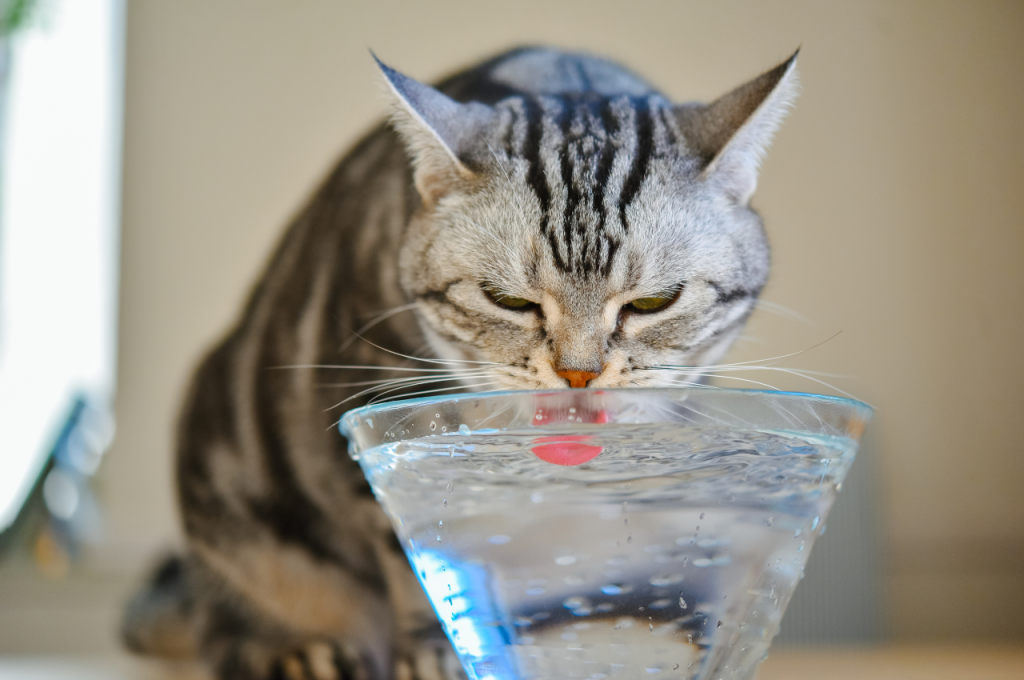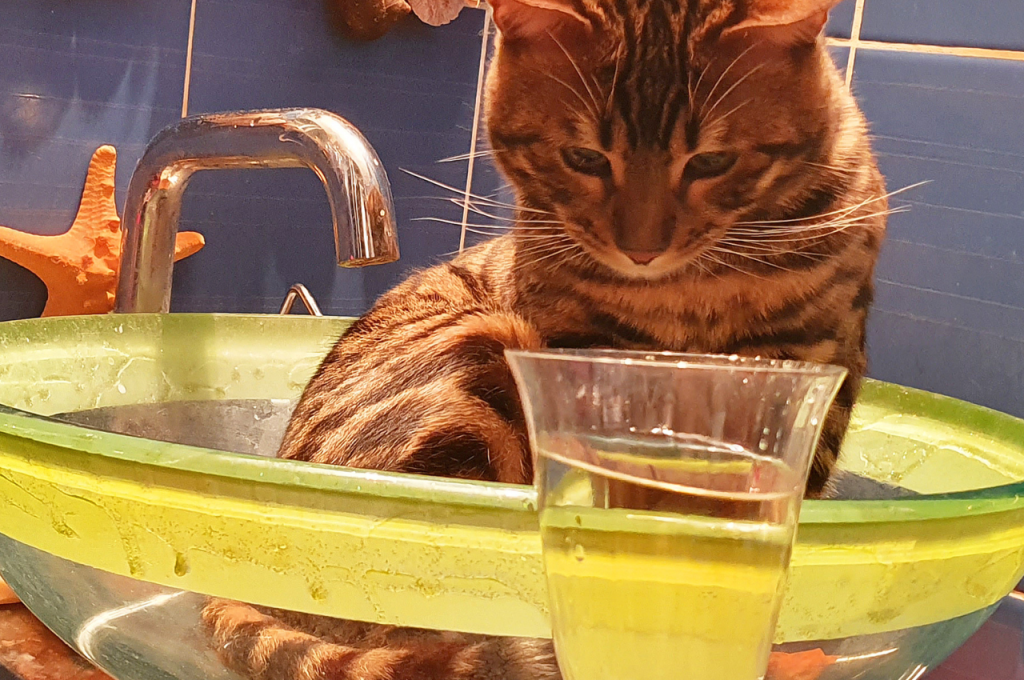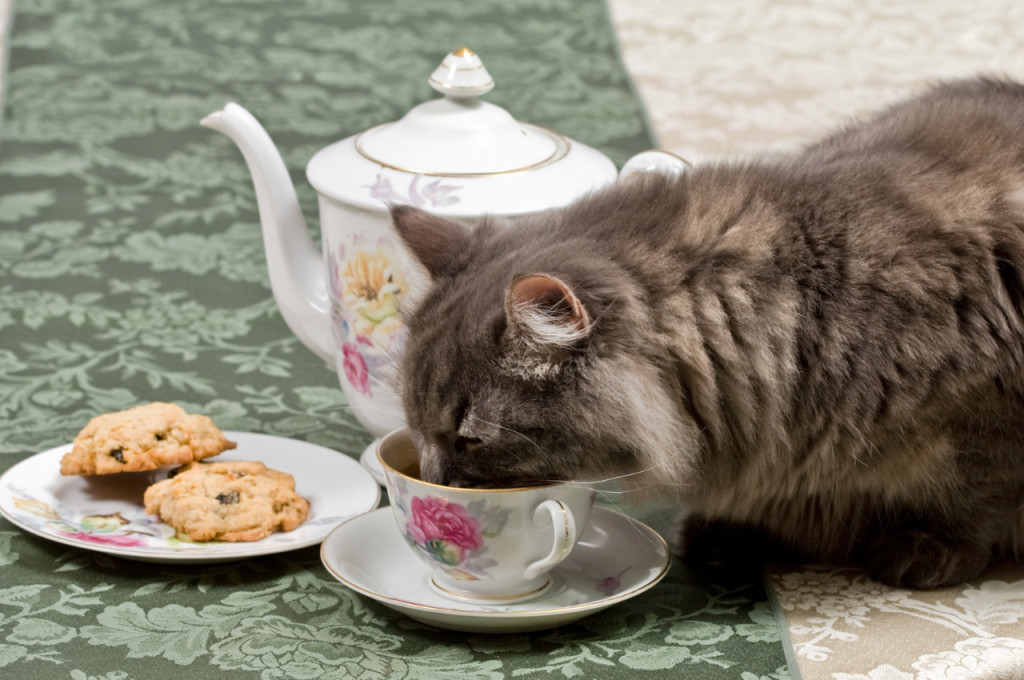Cats hate to drink citrus juice or milk due to their sensitivity to these drinks. Cats have unique taste preferences, including their drink choices.
While felines may have a reputation for being picky eaters, their discerning nature also extends to what they drink. Knowing what cats dislike when it comes to beverages can help ensure your furry friend stays happy and healthy. One type of liquid that cats typically detest is citrus juice.
The strong acidic taste and smell of citrus fruits, such as lemon or orange, are unappealing to cats and can even be harmful to their digestive systems if ingested. Similarly, despite the common belief, most adult cats are lactose intolerant, making milk another beverage they dislike. Understanding your cat’s preferences can help you provide the right liquids for their well-being, ensuring they stay hydrated and content.
Water
Cats can be quite particular about what they consume, and water is no exception. Here’s a closer look at what types of water cats often dislike. Understanding what types of water cats tend to dislike can help ensure they stay adequately hydrated.

Tap Water
Commonly used in households, tap water can be a source of dislike for cats due to its taste or odor.
Chemically Treated Water
Chemically treated water, such as water with added chlorine or fluoride, can deter cats from drinking enough water.
Milk
Cats and milk have a longstanding association in popular culture. Many people believe that cats love drinking milk, but the truth is quite the opposite. Milk might seem like a refreshing treat for your feline friend, but it’s actually something that most cats hate to drink.
Lactose Intolerance in Cats
Cats are lactose intolerant, meaning they lack the enzyme needed to properly digest lactose, a sugar found in milk. Lactose intolerance can lead to various digestive issues in cats, including diarrhea, stomach cramps, and bloating. Offering milk to a lactose-intolerant cat can result in discomfort and an upset stomach.
High-fat Content
In addition to lactose intolerance, milk contains a high-fat content that is not suitable for cats. High-fat content can lead to obesity and other health problems in cats, such as pancreatitis. It’s important to remember that a cat’s digestive system is different from that of humans, and they require a diet that is specifically tailored to their nutritional needs.
Citrus Juices
Cats dislike citrus juices like orange, lemon, and lime due to their strong scent and taste, which cats find unpleasant. These fruits contain compounds that are repellent to cats, making them a natural deterrent for preventing cats from drinking or licking them.
Acidity Levels
One of the reasons why cats hate citrus juices is because of their high acidity levels. Cats have a sensitive stomach, and acidic liquids can upset their digestive system. The acidity of citrus juices can cause stomach discomfort, leading to nausea and vomiting in cats.
Citrus Scent Aversion
Not only do cats dislike the taste of citrus juices, but they also have a scent aversion to them. Cats have a highly developed sense of smell, and the strong aroma of citrus fruits can be overwhelming for them. The intense citrus scent can be irritating and unpleasant for cats, causing them to avoid any environment or object that carries the citrus scent.
If you have ever peeled an orange or squeezed some lime juice near your feline friend, you may have noticed them becoming instantly repelled by the fruity scent. Cats rely on their sense of smell to navigate the world around them, and the strong scent of citrus can disrupt their olfactory system and make them uncomfortable.
Citrus scents are often used as natural cat deterrents by pet owners, as their dislike for the smell can deter them from certain areas or objects in the house. However, it’s important to note that while some cats strongly dislike citrus scents, others may not be bothered by them as much. Individual preferences can vary among cats, so it’s essential to observe your cat’s reactions and adjust accordingly.
Alcohol
Alcohol is highly toxic to cats and can cause severe health problems. It’s crucial to keep all alcoholic beverages away from them to prevent any potential harm.

Toxicity to Cats
When it comes to what cats hate to drink, alcohol is at the top of the list. Alcohol is highly toxic to cats and can have severe negative effects on their health. Cats lack the necessary enzymes to efficiently metabolize alcohol, leading to dangerous consequences if consumed. Even small amounts of alcohol can cause serious harm to our feline friends.
Negative Effects on Cats
The negative effects of alcohol on cats can be detrimental to their well-being. Some of the potential risks include:
1. Central Nervous System Depression: Alcohol acts as a depressant on the central nervous system of cats, leading to impaired coordination, stumbling, and even coma. Their reactions slow down, and they may become disoriented or unresponsive.
2. Respiratory Distress: Alcohol ingestion can result in respiratory distress for cats. It can cause labored breathing, decreased oxygen levels, and potential respiratory failure. These respiratory issues can be life-threatening and require immediate veterinary attention.
3. Cardiovascular Problems: Cats that consume alcohol may experience abnormal heart rhythms, increased heart rate, and changes in blood pressure. These cardiovascular issues can have serious implications for their overall health and well-being.
4. Liver Damage: The liver plays a crucial role in metabolizing alcohol and removing toxins from the body. However, cats’ livers are not designed to handle alcohol efficiently, which can lead to irreversible liver damage over time.
5. Dehydration: Alcohol is a diuretic, meaning it increases urine production and can lead to dehydration in cats. Dehydration can cause a range of health issues, including kidney problems and electrolyte imbalances.
6. Gastrointestinal Disturbances: Cats are susceptible to gastrointestinal issues after consuming alcohol, including vomiting, diarrhea, and stomach irritation.
These symptoms can be distressing and can further lead to dehydration and nutrient deficiencies. To protect our furry companions, it’s essential to keep all alcoholic beverages out of their reach. If you suspect that your cat has ingested alcohol, seek immediate veterinary assistance. Remember, prevention is always better than encountering the negative effects alcohol can have on our beloved feline friends.
Caffeinated Beverages
Caffeinated beverages are a popular choice for many people, providing a quick energy boost to kickstart the day. However, when it comes to our feline friends, these stimulants can have dangerous effects. Cats are highly sensitive to caffeine, and consuming it can lead to adverse health issues. It’s crucial for pet owners to be aware of the effects of caffeine on cats and the potential risks of caffeine poisoning.
Effects of Caffeine on Cats
Cats are much smaller than humans, making them particularly susceptible to the stimulating effects of caffeine. When a cat ingests caffeine, it quickly absorbs into their bloodstream, affecting their central nervous system. This can lead to restlessness, rapid breathing, increased heart rate, and even muscle tremors.
In addition, caffeine can also cause vomiting, diarrhea, and excessive thirst in cats. Furthermore, the substance can be toxic to their kidneys and liver, posing serious long-term health risks.
Risk of Caffeine Poisoning
The risk of caffeine poisoning in cats should not be underestimated. Even a small amount of caffeine can have severe consequences for a feline companion. Pet owners must be diligent about keeping caffeinated beverages such as coffee, tea, energy drinks, and soda out of reach of their cats. In case of accidental ingestion, immediate veterinary attention is crucial to prevent further complications.
Tea
Cats are known for their selective tastes, and tea is no exception. While some cats may show interest in the aroma of certain herbal teas, it’s generally recommended to avoid offering tea to cats.

Caffeine Content
Cats react strongly to the caffeine content in tea, which makes it harmful for their health.
Potentially Toxic Compounds
Tea contains compounds like theobromine and theophylline, which can be toxic to cats if consumed.
Frequently Asked Questions on What Do Cats Hate to Drink?
Sure! Here are some frequently asked questions (FAQ) about what cats hate to drink:
Q. What beverages are toxic to cats?
A. Certain drinks like alcohol, coffee, and milk with lactose are harmful to cats as they can cause poisoning and digestive issues. It’s important to keep these away from your feline companions to ensure their safety and well-being.
Q. Can cats drink water from any source?
A. Yes, cats can drink water from various sources such as a bowl, pet fountain, or even a tap. However, it’s essential to provide clean, fresh water at all times to keep your cat adequately hydrated and promote their overall health.
Q. Is it safe for cats to drink from the toilet?
A. Drinking from the toilet can expose cats to harmful bacteria and chemicals commonly found in toilet water. Encourage your cat to drink from clean, fresh water sources to prevent any potential health hazards and maintain their well-being.
Conclusion
Understanding what cats hate to drink is crucial for their well-being. By avoiding offering them milk, alcohol, or caffeine, you can help keep your feline friend healthy and happy. Water is the best choice for hydration, and it’s important to pay attention to your cat’s preferences to ensure they stay properly hydrated.
Prioritizing your cat’s hydration needs shows you’re a responsible pet owner.
